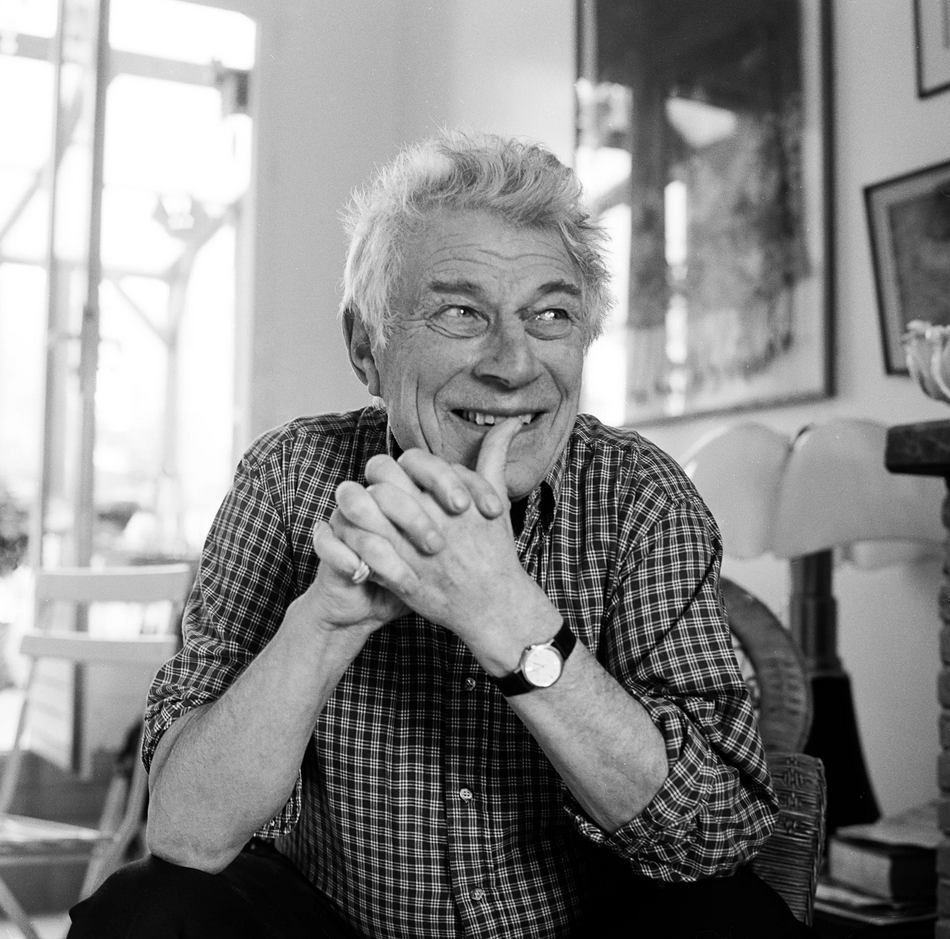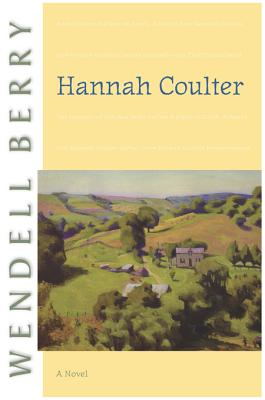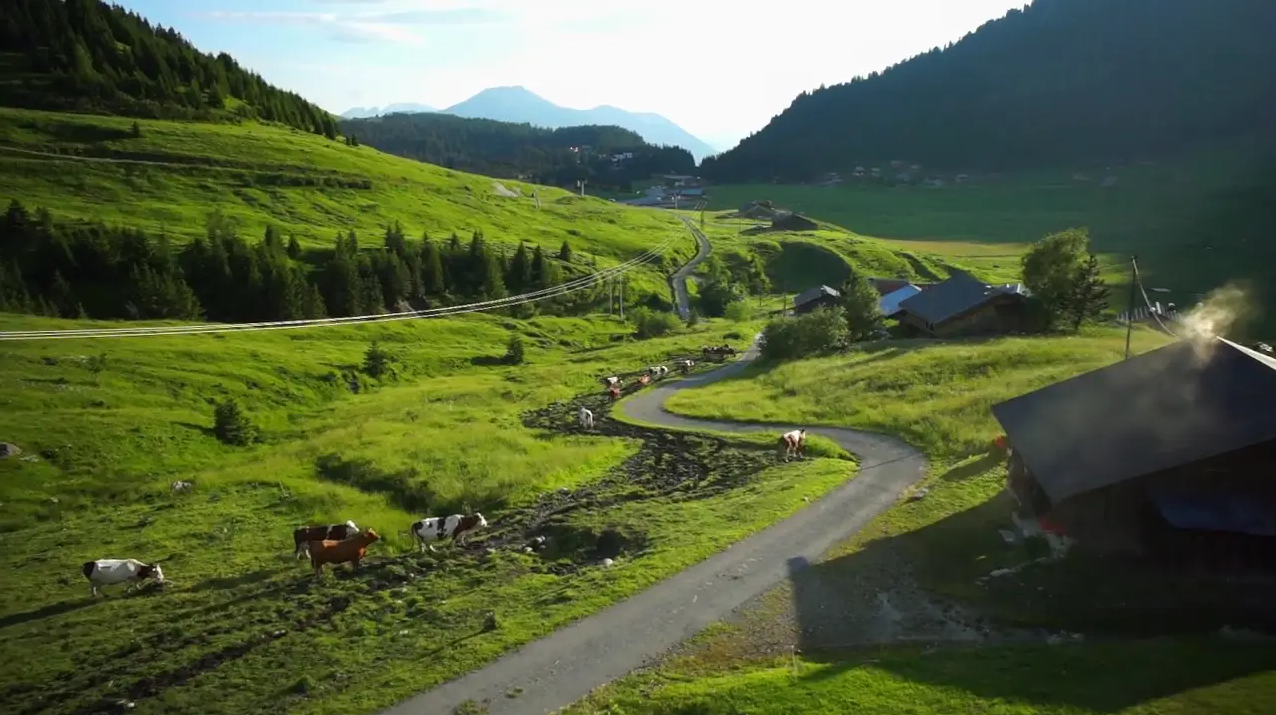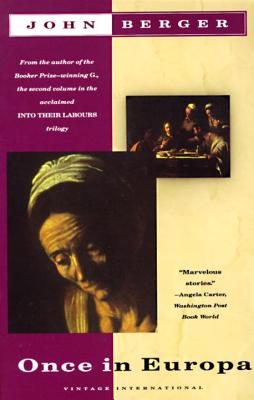Gateshead, UK. If a home library is a kind of microcosm for one’s life and times, then the top shelf of my modest book collection is a big part of my own story. Here sit side by side roughly twenty books by Wendell Berry and roughly twenty by John Berger. (For those not familiar with Berger, he was an English novelist, art critic, and reputed Marxist who died in 2017. Good books of his to begin with might be the mainly fictional Pig Earth and the non-fiction account of a country doctor, A Fortunate Man.) There are books of essays as well as fiction, and some of Berry’s Sabbath poems, while a couple of the Berger books consist of photographs interleaved with non-fiction texts, poems, and songs. Berry’s (and Gary Snyder’s) Distant Neighbors is the single collection of letters on the shelf and his book on William Carlos Williams is one area, literary appreciation, which Berger leaves more or less untouched. On Berger’s side, his art criticism accounts for several books, including Permanent Red, Ways of Seeing, and The Shape of a Pocket.

As a young man growing up in England, I always preferred European writers and thinkers to British ones, and American books like One Flew Over the Cuckoo’s Nest and The Grapes of Wrath, over works by my own countrymen. I was initially drawn to Berger and Berry at different periods in my life, Berger coming perhaps eight years sooner, although by now there have been a couple of decades reading Berry alongside him. Although Berger was English, he was in spirit more European, exiling himself to the Haute Savoie in France in the 1970s following an earlier move to Geneva, because of his disgust with British politics and culture. He lived in the village of Quincy where he learned the agrarian life from the peasants about whom he wrote. Berry, of course, walked away from an academic career and the metropolis to farm and write in a remote part of Kentucky. Both these writers are distinctive in their preference for what Berry might call “a conversation out of school” (Berger claimed that much of what he knew came to him informally through friendships with European emigres), although both sampled life in the centers of influence. They are also united by their refusal to stick to a single genre. John Berger explained his freedom to write different kinds of text, the writing of which all felt subjectively similar to him, by his separateness from the university system, and any reader of Berry’s essays knows that he writes often about excessive specialization in the academy and in Western culture as a whole.
For me, as I came into manhood in the time up to and after the Millennium, poised between the continent and traditions of Europe and the newer world of American influence, these writers gave me sustenance and kept me thinking about love, memory, politics, time, tenderness, community, technology, and the afterlife, among other things. I would not like to say which one has been more important to me. In fact it is the dialectic between them, their similarities and differences, that has formed a part of who I am with my own contradictions and hopefully sometimes healthy tensions: thinking Christian, cultural conservative with working class origins and a desire for social justice, British technophobe seeking fellowship in an online community of Americans.

Thinking philosophically, one could explore how both Berger and Berry have written about death and dying—Berger’s ”Ernst Fischer: A Philosopher and Death” and Berry’s ”Quantity versus Form,” as well as the story ”Fidelity,” which tells of the death of Burley Coulter. More politically, one could consider the way Berry has stood for pacifism and against industrialization and juxtapose this with an account of how Berger has stood for people claiming their social rights and against imperialism, announcing his intention to give away part of his Booker prize money to the Black Panthers and denouncing the Booker-McConnell company for its historical expropriation of wealth away from the Caribbean during his acceptance speech. All of this is interesting and challenging. But I want instead to look at Berry and Berger as tellers of stories steeped in tenderness, stories of redemption. When I first read the Berger story, ”Once in Europa,” I had no faith of my own and was very taken with the writer’s blend of Marxism and mysticism as he presented a world where historical time, though vital, is only part of reality and the dead are much nearer to us than we think. These insights were later corroborated by Berry’s Hannah Coulter, which likewise does not spare readers the hard realities of life in this world, while refusing to accept these realities as the final word.
Both stories find their place in wider narratives: Hannah Coulter is one of many novels and short stories set in Port William, while ”Once in Europa” is the title story in the second book of Berger’s trilogy, Into their Labours. The interweaving of lives is more prominent in Berry, but it is there allusively in Berger, and both sets of stories have a strong sense of place as well as the disruption of place through industrialization and war. These are two writers who, along with others like Marilynne Robinson, feel affection for their characters and want to revisit them, as well as the stories that are told in their fictive communities, communities which correspond to the real-life ones of Haute Savoie in France and Port Royal in Kentucky. As a reviewer of William Kennedy’s Albany books wrote, “When you’ve assembled…a ‘cycle’, you can strike a light in one book that shines in the others.” This certainly applies to the many resonances within the works of Berger and Berry.
But it is the resonances between these two stories that I have found fascinating. Both are told in the voices of elderly women looking back along their lives and making sense of what they see through the process of remembering and telling what happened to them. If Hannah’s is a softer voice and Odile Blanc’s at times harsher, this is perhaps because Hannah belongs to the Port William ”membership” and her battles have been fought in that larger company while Odile’s have been more solitary. Both women’s stories track the joys and griefs of ordinary, obscure people and how they held onto hope when, as Odile puts it, ”The long years began,” or in Hannah’s words there were things ”hard to bear.” These are tales of patience and resilience in the face of massive historical change and the tragedies such change brings, both sudden ones like death and mutilation, and more drawn out ones like being alienated from our children who are further along in the historical process than we can ever be or would want to be.
Berger’s trilogy chronicles the disappearance of the European peasantry, together with their shrewd resistance to vastly more powerful forces. Odile Blanc grows up in the Giffre valley where, “The first sounds I remember are the sounds of the factory siren and the noise of the river.” The siren sounds rarely in case of accidents while the river has been ”present all the while.” Odile’s father, the stubborn and passionate Achille, is mocked by his son for ”leading his four miserable cows through a factory yard four times a day.” But Achille proclaims, ”My patrimony is not for sale,” and that he will dynamite the factory offices rather than give in to Company lawyers trying to get him off his land. Looking back Odile concludes, ”We were surrounded.” The factory is a hellish place with its chimney ”like a black viper standing on its tail,” emitting tongues of blue flame, producing manganese that is of no use for the local people. It is a sterile place of dust and of death, although each year an official comes to tell the village schoolchildren that it is ”the pride of the region.” Odile observes that it ”squats on the river like a woman peeing. He didn’t say that.” As with Kyle Bode, a character in Berry’s ”Fidelity,” the visiting official is a figure of fun whose words of confident authority are belied by the experience of the local people listening to him.
Meanwhile in Kentucky, the newlyweds Hannah and Virgil Feltner are looking over ”our river” and its valley causing Hannah to exclaim, ”I can see the whole world”; she reflects that ”It needed a long look because you had to think of how old it was, and of how many voices had spoken and were hushed again beside it.” Soon, during their final two weeks together, Virgil will bring Hannah to their ”dream house,” a mere collection of rocks placed ”to mark the corners and doors of a house”; and yet building this is ”the kindest” of all the kind things Virgil does for Hannah, providing a place ”to live the dearest minutes of our marriage,” and ensuring that Hannah has ”something of him with me that I could keep,” when Virgil’s leave ends and he is sent to fight overseas.
Odile too has a place to be with her beloved Stepan, a place constructed out of kindness by his fellow immigrant workers. This place is merely a room in the factory barracks, in one of the sheds labelled ”In Europa.” Odlie tells how, ”They started to build a room,” which takes “a week of their free time.” Here are the tenderness and kindness of hardworking men who, separated from their own families, make a conjugal space for the couple within the rough dormitory provided by the Company. Meanwhile, ”Stepan was making a bed…a rose carved at each corner.” These are lives that are made in a literal as well as a figurative sense, where work and craft are a kind of art that parallel those of farming and writing. (The link between farming and art is noted by Berger’s biographer, Joshua Sperling, who cites Berry on the comparison). These made things form what Berger called “a small pocket of resistance” against the mass production and mass culture that press around the stories’ characters—they are indeed ”surrounded,” but they are alive in the midst of the ashes and venom of the modern world, the same world that has brought them together in Stepan and Odlie’s case, but which will then pull them asunder, as it will Hannah and Virgil.
The war takes Virgil and the factory takes Stepan. Both men succumb to flames of hellish proportions. Stepan had earlier told Odile that a factory accident is ”hell itself,” referring to the accident through which an earlier suitor of Odile, Michel Labourier lost both his legs. For Hannah the war that claims Virgil (and profoundly marks her second husband Nathan) is ”the outer darkness beyond the reach of love.” In both stories no corpse can be found; destruction appears to be complete.
But both women are pregnant, and so new life comes forth in the midst of devastation. As Hannah says of the living, ”The light that shines in darkness and never goes out calls them on into life.” Berry and Berger both use the image of milk and breast-feeding mothers to signal life’s renewal. Thus Hannah: ”As the baby fed, I seemed to grow empty of myself, as if in the presence of that long flow of love even grief could not stand.” And Odlie as she tells her story for her now grown son, Christian: ”How you sucked! How you loved life!” And then later she tells her daughter, Marie-Noelle, ”Ashes are men’s stuff. Milk is ours.”
This takes us to the theme of redemption, the theme that makes these the kind of stories that might just save a life. Michel Labourier re-enters Odile’s story, now with two prosthetic legs, telling her, ”When there’s no choice…it’s extraordinary what you can adapt to,” to which she replies, ”I know.” His time in the hospital burns unit led to the epiphany that with their new disability, he and the other burn victims ”had to learn to live a second life.” For Michel, part of this new life is the gift he receives of becoming a ”fire-cutter,” able to heal burns and bleeding jugulars without even touching the victim. Michel wants to see Odile healed too, and himself, and he tries to convince her that she is wasting her life resenting other women whose husbands are alive, while she is ”living with a ghost.”
In Hannah Coulter’s story, the conviction Nathan instills in her is wordless: ”It was his presence that gave me the feeling I was going to waste.” It is Nathan’s purposeful looks that bring a change in Hannah. Theirs is “not a youthful romance. It was a knowing love. Both of us had suffered the war.” But on the verge of second chances at life, there is a vulnerability to acknowledge. “We were like children,” says Odile, ”When I think of it now, I want to protect us.” For Odile, the acceptance that Stepan is gone and Michel has come is the challenge she has to face. For Hannah, the challenges extend much further and involve the lesson that “expectations can be a bucket of smoke,” a lesson painfully taught through the raising of children in a rapidly changing world.
Berry has written of the breaking of the succession of generations in Wordsworth’s tragic poem, “Michael,” and Hannah’s children are the characters through whom Berry brings a contemporary version of this tragedy to life in Port William. While the chapter on Okinawa, with its “maggots” and “dysentery,” its “rotting flesh, excrement, vomit,” is the most harrowing in the novel, there is pain of a different order in the three chapters telling the stories of her children, Margaret, Mattie, and Caleb. One wonders whether Berry had to find out for himself the truth that Hannah speaks to Nathan about Mattie; if not he surely saw these things at close range: “Well maybe you’ve got to expect less. Or expect something else. He’s not you. He’s maybe never going to see what you see or want what you want.” Hannah herself confesses, “I have this love for Mattie. It was formed in me as he himself was formed.” But while Hannah knows, “He will always fit into it,” she is also forced to acknowledge, “He and his wife and his children and I are strangers.” Most poignant of all are the words she uses about her love for her grandchildren: “It is a failed love, and hard to bear.” Only Hannah can see this failed love—to her grandchildren it is invisible and no burden at all.
Caleb’s tale is “the most complicated of the three,” as he is the bearer of Hannah and Nathan’s hopes for a “true inheritor,” and his “natural calling,” Hannah believes, “is to be a farmer.” But Caleb is tempted, as Berry once was, by academia and the belief that he can do more good for his community far away from it than he ever could within it. This is a familiar theme in Berry’s work: modernity teaches us to think we can begin to be someone only if we go somewhere else. Caleb’s decision to leave requires no small adjustment for Nathan to accept, but at length he affirms, “Hannah, my old girl, we’re going to live right on.” The membership might be diminished, but it is not yet done.
The world into which Margaret, Mattie, and Caleb defect recalls that of the Company in Once in Europa, which refuses to pay a pension to the unmarried and pregnant Odile after Stepan’s death, its representative informing her, “I believe you, but the company can’t.” And Hannah reflects that, “The life of membership with all its cumbers is traded away for the life of employment that makes itself free by forgetting you clean as a whistle when you are not of use anymore.” Hannah’s vision of her children’s end is that they will be “alone at the last maybe and soon forgotten.” Many of us who read Berry have never known true membership, unless we have perhaps glimpsed something of it in a religious community. However, we can still feel the loss to which Berry points us through Hannah’s children. I asked my wife whether growing up in a village in the north of Portugal was a richer experience than that open to city people. She unhesitatingly said, “Yes.” Berry’s work is useful not just in documenting the change in one specific community, but in making visible a loss that most of us, like Hannah’s grandchildren, do not even realize has befallen us.
Margaret rounds out this unhappy picture. Her son Virgie goes off the rails and into the murky world of drugs as a response to his father’s fickle abandonment of his mother. Marcus deserts Margaret in the name of self-fulfillment and pursues a relationship that “wanted to happen” of its own accord, and this wrong committed against her daughter brings out an Odile-like feistiness in Hannah so that she wants “to go to work on Marcus” with a club. But it is Hannah’s verbal assessment that captures a truth that many of us men know from experience: “The time wants men to be as silly in character as they are in nature.” Nathan’s more laconic take is that “It would have been much better for Marcus if he had been tireder at night.” Of course it would be dishonest to blame our times, and factors like the lack of manual work in our culture, for our moral failings. Still, we are entitled to a certain rueful reflection on the way we have embraced the “convenience” of modern modes of living, with their contempt for fidelity, and the ample leisure we have been given both to commit our sins and to repent of them, assuming we get round to doing so. This kind of moral impulse in Berry is not something you will find much of in Berger, whose work may be the weaker for its lack.
But as I said, these are redemption stories. Later, Virgie will tentatively assume the role of prodigal son, returning to the farm, as does Andy Catlett in Remembering, and will tell Hannah, “I want to be here. I want to live here and farm. It’s the only thing I really want to do. I found that out.”
There is losing and there is finding in life as in art. At the end of Once in Europa, Odile is found by Michel “there on the bed.” Finally she sees that her great love for Stepan does not preclude her love for Michel. After all, the martial vows which Hannah took and which Odile did not take in any formal way but meant nonetheless, are made between the living only. And so, there are second chances for some of us, but even second chances bring new losses. For me, it is the grace and hope of these stories and others like them in the work of Berry and Berger that has earned them pride of place on my shelves and in my life. To use Hannah’s words, they have been for me a part of the “shiver of the altogether given that passes over me from head to foot.” For this I can only be grateful.






